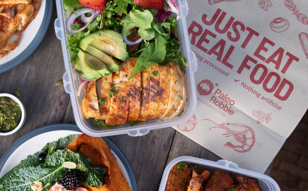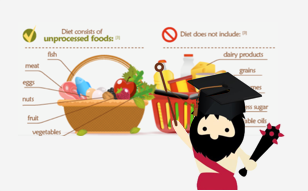
Don't you just love starting out your day with a nice breakfast of poached eggs and a side of crispy bacon? It’s definitely a tasty, filling and nutritious way to begin the day.
But then you began to hear that eggs are not good for your health that its yolk contains cholesterol that harms your heart. The persistent myth that cholesterol causes heart disease has sadly scared many of us away from eating eggs on a regular basis. But there is absolutely no research that links egg consumption to heart disease.
Eliminating them from your diet for fear of fat and cholesterol is actually depriving your body of important nutrition. Eggs are one of the most nutrient-dense foods available. One egg provides 13 essential nutrients, all in the yolk. When we compare egg yolks to egg whites, the white lacks most of these nutrients.
Let's look at the differences between the egg white and the yolk

Egg White
It’s basically water, protein, and a couple of nutrients in small amounts.
Egg Yolk
It’s got triple the calories of the white, almost as much protein, and a wide range of nutrients including:
Vitamins
Egg yolks contain more vitamins than egg whites. Each egg yolk contains seven vitamins: B6, folate, a B vitamin, B-12, A, D, E and K. Of those, vitamins A, D, E and K are found only in egg yolks and not in egg whites. In fact, egg yolks are one of only a handful of foods in which vitamin D is naturally found.
Minerals
Like vitamins, minerals are crucial nutritional building blocks, essential for carrying out body functions like balancing electrolytes. Egg yolks and egg whites each have 13 varieties of minerals. These minerals include calcium, magnesium, iron, potassium, sodium and selenium. Although both the egg white and egg yolk contain these minerals, the yolk has larger amounts of most. For example, 90% of an egg's calcium is in its yolk; 93% of its iron content is in the yolk, with just 7% in the white.
Choline
Choline is essential for the normal functioning of all cells in your body and assures the structural development and signaling functions of cell membranes. The human brain requires choline for cell membrane stability and the production of Acetylcholine; the neurotransmitter linked to memory, mental clarity, and logical reasoning.
What kind of Eggs you should be eating
Most of us do not give a second thought to the kind of eggs that we eat. We simply purchase ones from a local Big C or Tesco. However, the kind of eggs we consume is important while considering their nutritional value. The kind of food intake of the chicken plays a part in determining the quality of the egg.
Eggs from chickens that are free to eat grass and insects, are of higher nutritional quality compared to eggs from chicken raised in confinement. The egg yolk’s color has implications regarding the nutrition and health of the chicken that produced it.
A darker yolk is an indication of a nutritious and balanced diet rich in xanthophyll, omega-3 fatty acids and meats. Free-range organic chicken farmers must feed their chickens lots of fresh greens, including kale, collard and broccoli to produce the dark orange yolk that has been proven to not only taste richer but also be more rich in nutrients and vitamins.
It's important to know where your eggs come from. We regularly visit our chicken farms to make sure that they are getting the right feed and are roaming around freely and happily.


You can find our free-range chicken eggs from our two different suppliers under the Pastured Chicken section of our grocery.


 Latest
Latest Newsletters
Newsletters Learn
Learn Recipes
Recipes Video
Video


